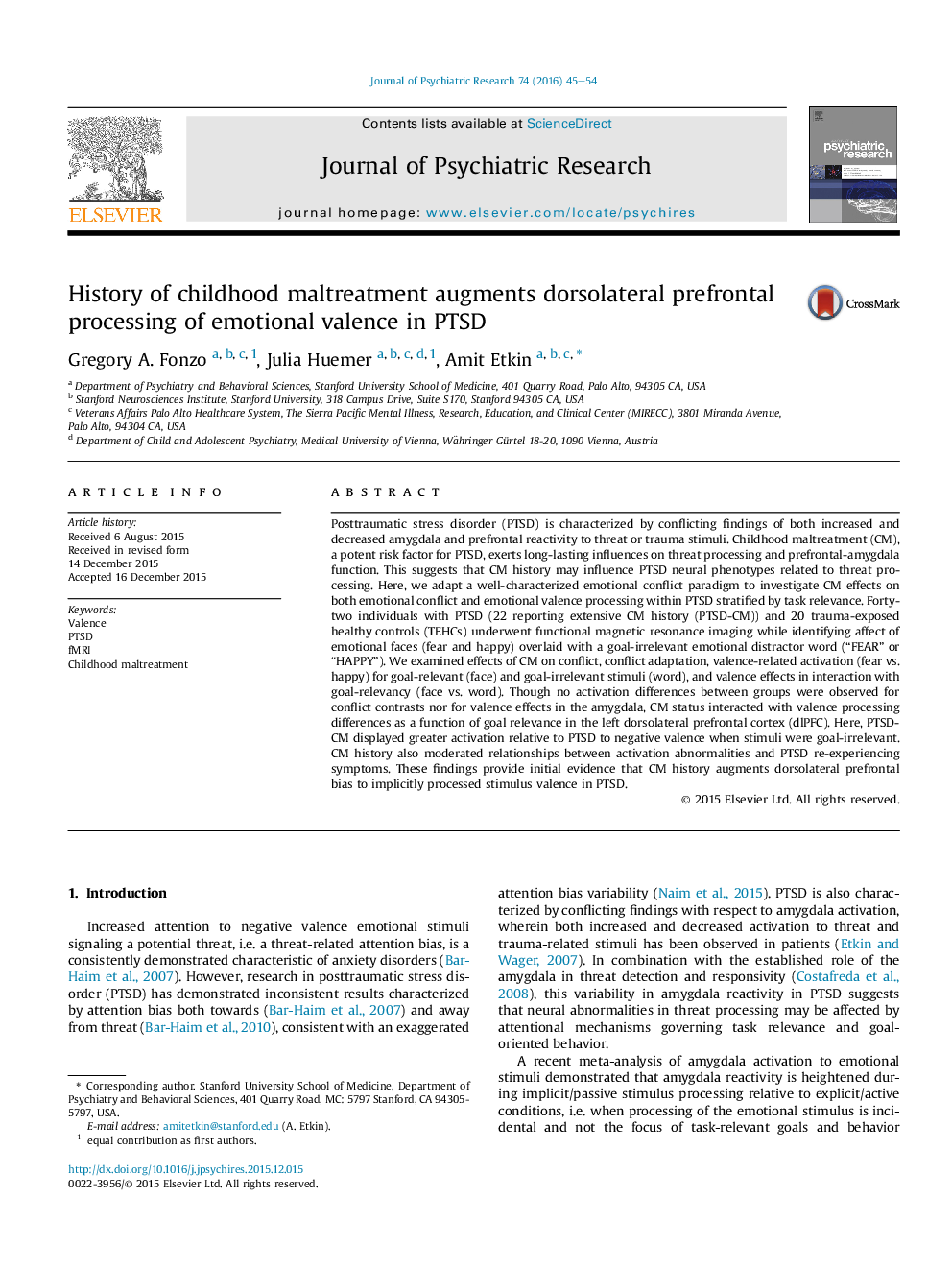| کد مقاله | کد نشریه | سال انتشار | مقاله انگلیسی | نسخه تمام متن |
|---|---|---|---|---|
| 326463 | 542430 | 2016 | 10 صفحه PDF | دانلود رایگان |

• CM history in PTSD influenced left dlPFC activation to facial emotions overlaid with emotion words.
• In PTSD with CM, left dlPFC activation was greater to the fear vs. happy word regardless of face.
• In PTSD with CM, left dlPFC activation to face valence was inversely related to re-experiencing.
Posttraumatic stress disorder (PTSD) is characterized by conflicting findings of both increased and decreased amygdala and prefrontal reactivity to threat or trauma stimuli. Childhood maltreatment (CM), a potent risk factor for PTSD, exerts long-lasting influences on threat processing and prefrontal-amygdala function. This suggests that CM history may influence PTSD neural phenotypes related to threat processing. Here, we adapt a well-characterized emotional conflict paradigm to investigate CM effects on both emotional conflict and emotional valence processing within PTSD stratified by task relevance. Forty-two individuals with PTSD (22 reporting extensive CM history (PTSD-CM)) and 20 trauma-exposed healthy controls (TEHCs) underwent functional magnetic resonance imaging while identifying affect of emotional faces (fear and happy) overlaid with a goal-irrelevant emotional distractor word (“FEAR” or “HAPPY”). We examined effects of CM on conflict, conflict adaptation, valence-related activation (fear vs. happy) for goal-relevant (face) and goal-irrelevant stimuli (word), and valence effects in interaction with goal-relevancy (face vs. word). Though no activation differences between groups were observed for conflict contrasts nor for valence effects in the amygdala, CM status interacted with valence processing differences as a function of goal relevance in the left dorsolateral prefrontal cortex (dlPFC). Here, PTSD-CM displayed greater activation relative to PTSD to negative valence when stimuli were goal-irrelevant. CM history also moderated relationships between activation abnormalities and PTSD re-experiencing symptoms. These findings provide initial evidence that CM history augments dorsolateral prefrontal bias to implicitly processed stimulus valence in PTSD.
Figure optionsDownload as PowerPoint slide
Journal: Journal of Psychiatric Research - Volume 74, March 2016, Pages 45–54